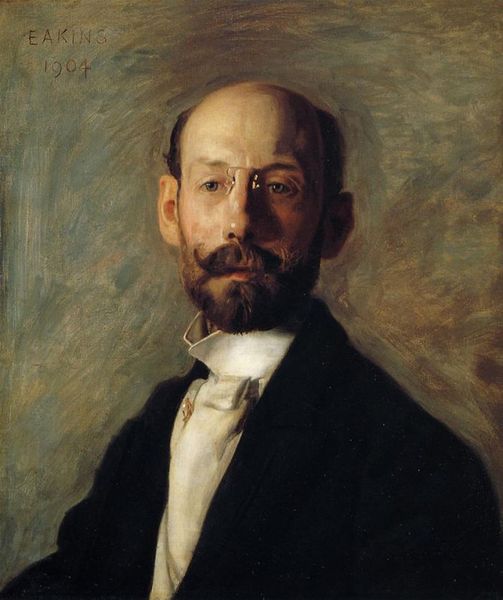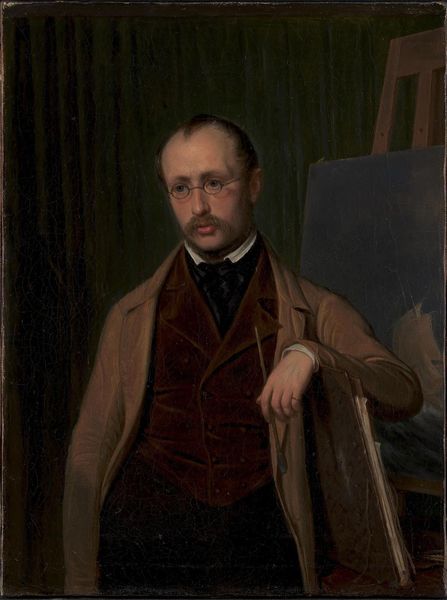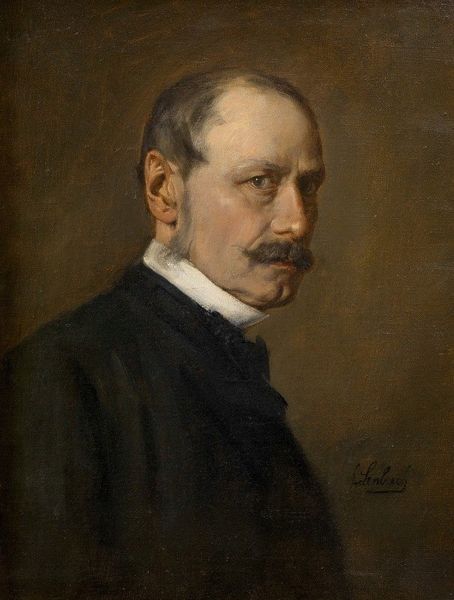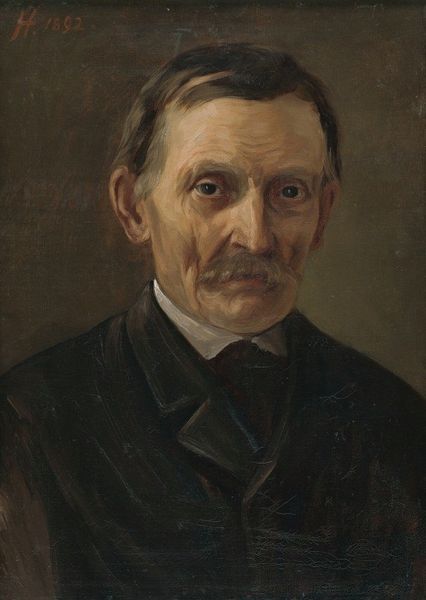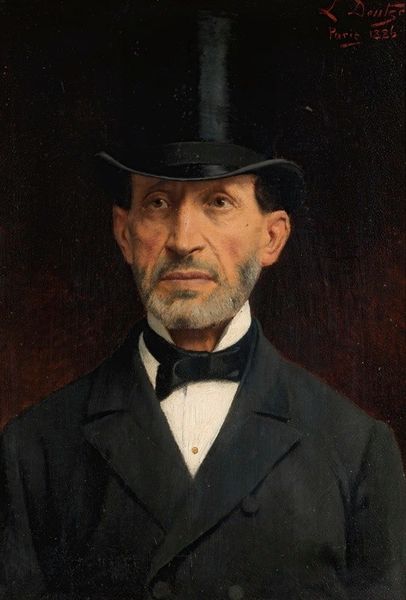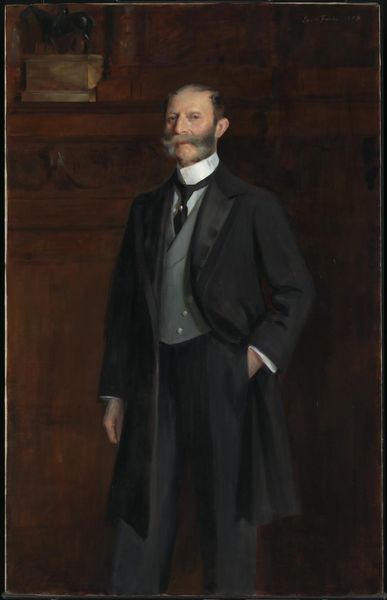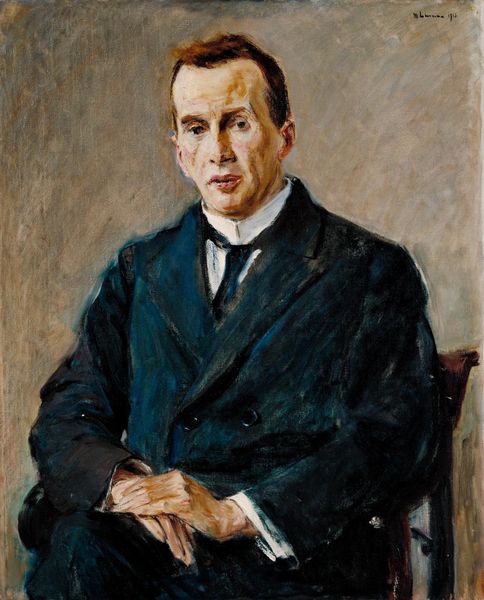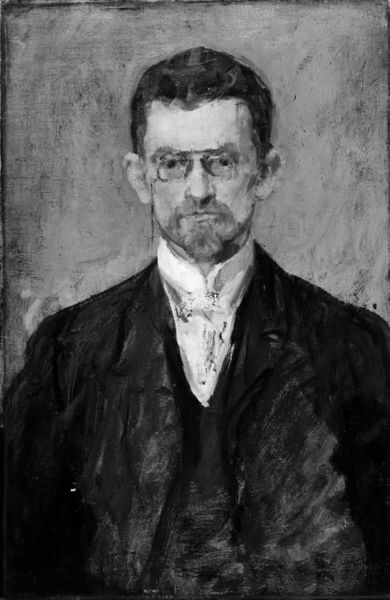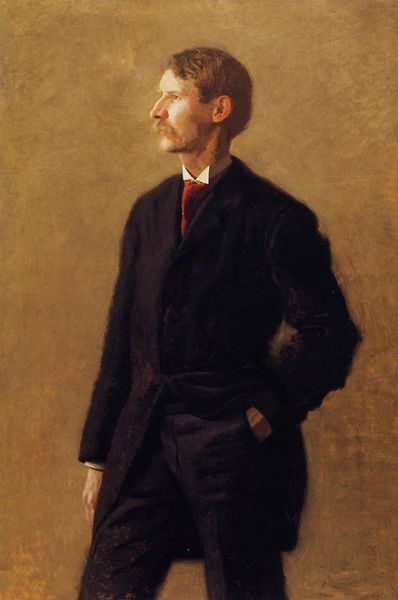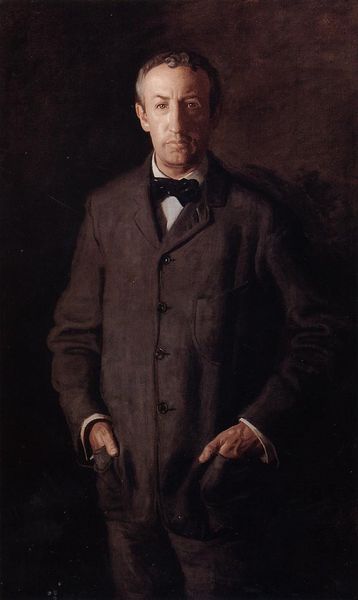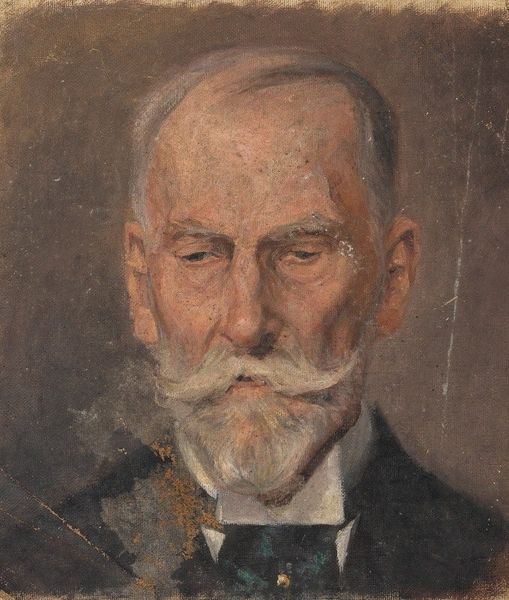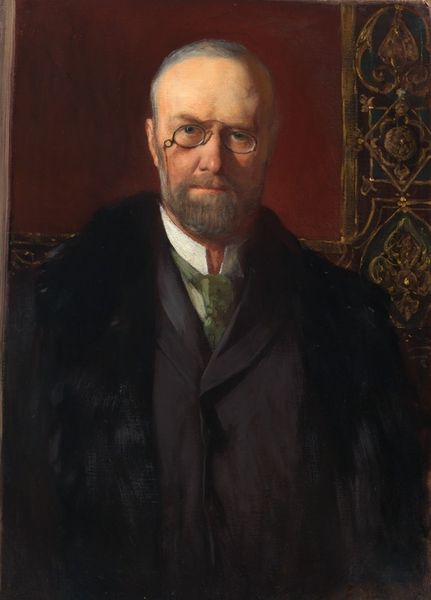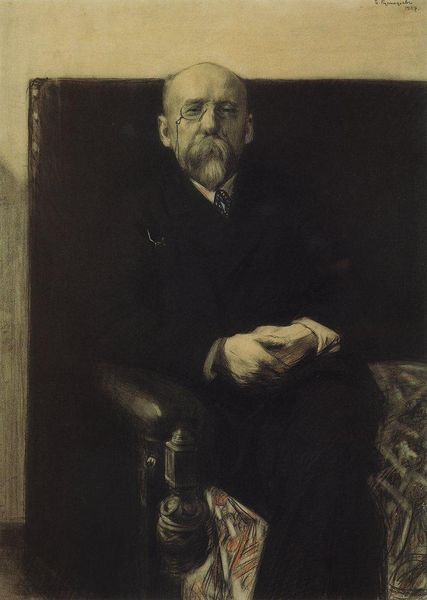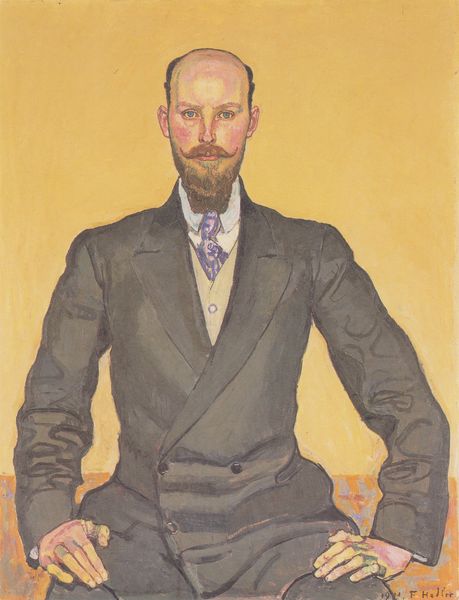
oil-paint
#
portrait
#
figurative
#
portrait image
#
portrait
#
impressionism
#
oil-paint
#
portrait reference
#
portrait head and shoulder
#
portrait drawing
#
facial portrait
#
post-impressionism
#
portrait art
#
fine art portrait
#
realism
#
celebrity portrait
#
digital portrait
Copyright: Public Domain: Artvee
Curator: Looking at "Portrait of Mikołaj Brzeski," completed in 1880 by Leon Wyczółkowski, one immediately sees a figure caught in thought, almost as if the artist captured a fleeting moment of reflection. Editor: My first impression is the austerity of the composition; the limited palette seems to confine the sitter in a subdued and, dare I say, melancholy mood. There’s a very particular balance, or perhaps tension, in the distribution of light. Curator: Absolutely, the austerity definitely sets a tone, doesn’t it? I feel like Wyczółkowski was particularly interested in the psychological depth of his subjects. It’s like he’s not just painting a face, but revealing something deeper within. Editor: Note how the angle of the portrait shifts our understanding: his gaze directed beyond the frame indicates contemplation. I’d even say the painting achieves a structuralist harmony: the oval of the eyeglasses reflected in the sternness of the subject. What are your thoughts about the brushwork here? Curator: The brushwork has this fluidity that softens what could be a very rigid portrait. You can see it especially in the beard and around the eyes; a sensitivity that suggests an underlying gentleness despite his formal attire. The artist sees more in this man than meets the eye, certainly. It’s less a painting about societal status and more about personal dignity. Editor: Fascinating point! The textures across the surface speak to Wyczółkowski’s attention to detail; and in terms of semiotics, the eyeglasses stand out as potent indicators. Curator: Right, those eyeglasses offer us an interpretation that goes beyond mere vision, it indicates that perhaps this is a man who values intellect or introspection. Also, Wyczółkowski gives them to us with just the right amount of light reflecting in the glass. Editor: Agreed! Looking closely at the composition, its visual harmony brings to life an era. This isn't merely about representation; it's about presenting structure, symbolism and light that transcends the representational to unveil truths about art and experience. Curator: True enough. What strikes me most is how Wyczółkowski balances representation and some almost impressionistic strokes. It’s an intriguing blend of precision and raw emotion, isn’t it? Editor: Absolutely. This piece underscores how a deep engagement with form—the play of line, light, and materiality—enriches our understanding and appreciation of a subject. Curator: For me, this painting invites us to find quiet stories, small moments of humanity within portraits from the past, where technique dances in a unique interplay.
Comments
No comments
Be the first to comment and join the conversation on the ultimate creative platform.
